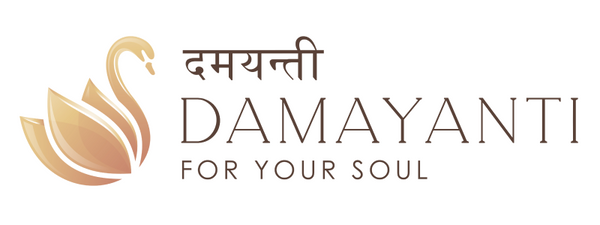Meditation is the practice that helps you keep the company of your own saintliness.
Swami Chidvilasananda
When I was ten years old I was introduced to meditation. I was given a mantra and I was encouraged to repeat it gently in my mind and to follow it wherever it went. It was like a game. I loved following the mantra as it dipped and rose and moved around in my mind and heart. Sometimes it wasn’t so easy – thoughts and dreams intruded - sometimes I even fell asleep, but usually the time passed happily and quietly.
At that time, in the 1970s, meditation was still thought of as something a little strange. Not so now. For decades meditation and similar practices have entered the mainstream and lots of research has now been done into the benefits of meditation. Let’s summarise the main benefits as identified by neurologists, psychologists and by regular meditators.
Benefits of Meditation
1. Stress relief, reduced anxiety, relaxation
There is a physical and emotional pay-off to regular meditation. One result of excess stress and anxiety is an over-production of the hormone cortisol. Too much cortisol can affect the brain and other organs as well as the immune system. The simple physical relaxation that comes from deep meditation can counter these effects of stress. And the mental space afforded by meditation can also give the meditator perspective so that the causes of stress are put into a more positive light.
2. Depression
A study published in the Journal of the American Medical Association found that meditation has the same effect on depression as anti-depressants. And it is a lot cheaper! And with wholly positive side-effects.
3. Other health benefits
Studies have shown that meditation has cardiovascular benefits by reducing the heart rate and blood pressure. There are also scientific studies which have looked at the effect of mindfulness meditation on stress levels and inflammation. See, for example.
4. Increased awareness and creativity
Other studies have identified the benefits of mindfulness training. This is a practice similar to meditation insofar as it trains us to be consciously aware and focused in the present moment. These practices lead to greater memory, creativity, focus and general alertness. I can attest, and these studies confirm, that meditation and mindfulness and the raising of one’s general level of awareness also result in increased enthusiasm and creativity. There is a rise in energy, and this gets translated into task commitment and creative thinking.
5. Spiritual connectedness
We need food, exercise and relaxation every day for every one of our bodies – physical, mental, emotional and spiritual. Meditation provides food and rest and disciplined focus for the inner subconscious parts of our being. This healthful integrated practice radiates its benefits to every part of us.
6. Confidence, calm and joy
Another major benefit of meditation is a little harder to quantify. This is the sense of confidence, strength and joy that regular meditators experience and which those around them remark upon. The calm that regular meditators feel transfers itself into a calming effect that they have on others. So the benefits of meditation are not just for those who meditate, but also for those who come within their orbit – their family, their friends, their colleagues, even shopkeepers and café staff.
So now let’s ask three basic questions:
What is Meditation?
Meditation is a technique often associated with spiritual and faith traditions that takes a meditator below the surface level of the mind to a state of calm and peace and inner self-awareness.
Because the techniques of meditation can differ markedly, there is some debate as to whether meditation can actually be defined at all.
Is focus on the breathing the same as repeating a mantra, and are either of these the same as concentrating the attention on an image of a divine being? Can all of these techniques be called ‘meditation’ or do we need to come up with a different name for each? Happily no. Those who make a study of these things have decided that there are three things that define meditation:
- The meditator engages with a technique, method or defined activity. This, for example, can be the repetition of a mantra or focusing on the breath or attending to each step while walking. It is an activity that is a ‘time out’ from the usual round of daily activity.
- Secondly, meditation involves some inner move to regulate and/or go beyond or below the discursive thinking of ordinary mental processes.
- And finally, meditation has the ultimate goal of achieving a state of calm or peace or union with a deeper consciousness.
For something to be considered ‘meditation’ it will have these three characteristics, whether it involves, for example, the repetition of a mantra or breath control or the focus of the mind on an attribute of God or stilling the mind and letting thoughts go.
How is Meditation ‘done’?
The particular technique that I follow involves meditating twice a day for half an hour each time. I let the mind find a place of stillness and peace, and then allow a single syllable mantra to repeat, while gently letting any thoughts or feelings come and go as they please. The idea is simply to follow the mantra wherever it goes while freeing any distracting thoughts or feelings to go on their way.
But there are a lot of other legitimate meditative techniques.
One other very simple practice is to count your breaths. In this technique you sit quietly and comfortably with eyes closed and take a few moments to let the mind settle. Then you gently put your attention on the sensation of the inward breath and the outward breath, letting distracting thoughts and feelings go. This a powerful practice as it links to the subtle but powerful energy of prāna – the life force.
For the more devotionally inclined, there are techniques that involve visualising an image or even engaging in a conversation with a divine entity or a beloved guru. Repeating the name of such a being – Krishna, Shiva, Jesus, the Buddha - can also lead the meditator into a state where they feel the presence of that beloved being.
Faith traditions often add ceremonial aspects to meditation – chanting, incense, pictures of gurus or deities, candles and so on. And many meditators find such adjuncts helpful in establishing a reverent and calming atmosphere. There are some who keep a special place in their home which they dedicate to their meditation.
There is a lot of guidance these days for anyone who wants to take up meditation in a way that will suit their nature and their daily schedule.
What does meditation do?
There are great benefits to meditation, as discussed above, ranging from physical health to mental acuity and spiritual connectedness.
There is another way of analysing the benefits of meditation by looking at ourselves and our human make-up.
For the sake of easy analysis, we can divide ourselves into four parts. One way of expressing this is to say that we have four bodies: a physical, mental, emotional and a spiritual body. We all have a physical body, mental processes, emotional experiences, and we all have a still centre that is the core of our being.
Just as our physical body needs the right balance of food, exercise and rest to remain healthy and balanced, so do the other three bodies. Another full-length article would be needed to go into the details of proper food, exercise and rest for the mind, the heart and the spirit. For our present purposes let’s look at what meditation does for each of the four bodies.
Meditation, as we outlined above, can assist in all of the various processes of the physical body through the suppression of harmful hormone production and the enhancement of the body’s ability to generate the more helpful ones.
The mind also needs food, exercise and rest. Mental food comes in the form of stimulation that feeds the creative and reasoning powers of the mind. The mind gets its exercise from creative thinking, the application of reason and problem solving. And rest for the mind? Perhaps you’ve already guessed – meditation.
Food, exercise and rest for the heart are also necessary for a well-rounded and healthy life. Poetry, music, love, a sense of wonder and awe, connection with nature are all food for the heart. Connecting with friends and family and strangers is also essential. Exercise for the heart comes in many forms, but one of the most accessible is to master the hard emotions: forgiveness of enemies, compassion and understanding of the annoyances in our life, developing the courage to speak out when we are reluctant to do so. And Meditation stands ready to give us rest when that is needed.
Spiritually, meditation provides food, rest and exercise for the spirit. The consciousness released in meditation feeds the spirit, the effort to turn from the chatter of the mind gives us exercise, and the inner connection with our deepest Self gives us the rest spoken of in all scriptures, philosophies and writings of the master teachers through the ages.
My teacher called meditation “the master key for all measures”. By this he meant that meditation is a cure-all, it is the master food, the key exercise, and the source of ultimate rest for every part of our being.

